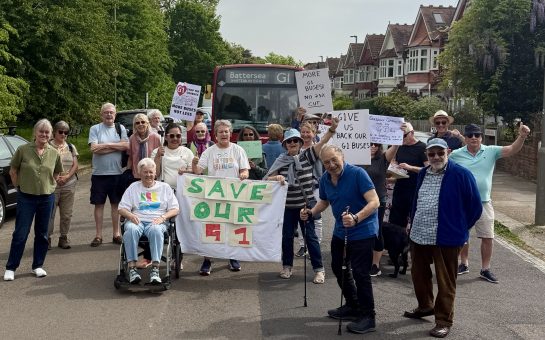Dr Abbas Khan travelled to Syria to offer medical assistance to civilians.

A doctor from Streatham has been found dead in a jail cell in Damascus where he had been held for 13 months by the Assad regime.
Dr Abbas Khan, a 32-year-old orthopaedic surgeon and father-of-two, travelled to Syria to offer medical assistance to civilians trapped in the conflict.
He was due to be released this Friday as ‘a Christmas present to the British public’ from the Assad regime.
Foreign Office Minister Hugh Robertson said Dr Khan was ‘in effect murdered’. He was found hanged in his cell, but his family have cast doubt on the likelihood that he would have committed suicide within days of being released, and criticised the UK government for treating him as ‘a wayward traveller’.
The controversy over the circumstances of Dr Khan’s death comes as pressure from Western governments and the United Nations mounts about concerns of widespread malnourishment and starvation amongst the Syrian population.
Visas have begun to be issued to international aid agencies previously barred, to cross Syrian borders, and on Sunday the first UN aid drop flew from Iraq after being delayed by heavy snow.
The blizzard sweeping through the Middle East for the past few weeks, leaving a thick layer of snow settled on bombed-out Syrian towns, has made for post-apocalyptic photographs. They are scenes of dereliction: homes that have lost their walls; and new homes, the temporary, canvas kind, that have been set up in neighbouring Lebanon, Jordan, Turkey and Iraq in official, and unofficial, refugee camps.
Syria’s neighbours have become hosts to some 2.3million refugees, yet many try to make their way to Europe. The U.N has asked EU countries to rehome 30,000 refugees by the end of next year – so far, not even half that number have been given asylum.
As it is, Germany has offered space to 10,000 Syrians; France, 500; and Spain, 30. Britain has allocated none.
The Home Office reiterated on Friday that it had no plans to open borders to refugees from Syria. Whilst individual applications for asylum can be lodged, the government’s stance on immigration is unlikely to budge, despite criticism from Amnesty International who described it as ‘pitiful’.
Sunny Hundal, 46, a writer who lectures at Kingston University, says that it is not only the government who remain obstinate in the face of a humanitarian crisis, but a reflection of a more widespread British trend.
“Certain parts of the media are more sympathetic to helping people who look British (whites in Zimbabwe for example) than people from parts of the Middle East or South Asia. Because of this grotesque double-standard, talk of asylum for some desperate Syrians is barely being raised,” Mr Hundal said.
Last week, £500million was pledged to spend on the crisis by Justine Greening, Secretary of State for International Development, which will be distributed throughout Syria and its neighbours through international organisations.
It coincided with the announcement that ‘non-lethal’ aid, including medical supplies, would be halted after American suspicions that U.S aid had been seized by militant Islamist factions.
Hand in Hand for Syria, a charity working in the region to provide aid to those affected by the conflict, welcomed the pledge. Hanadi, a spokesperson whose full name is withheld to protect her identity, said: “The UN has requested $1.4 billion for humanitarian assistance inside Syria and to date only 60% of this has been funded, so there is still a long way to go to help the growing number of people desperate for help.”
For those who do leave Syria, life outside its borders poses a different set of difficulties. Attempts by Syrian refugees to cross into Greece, Malta and Italy have resulted in hundreds of fatalities since the civil war began in 2011.
Maltese Prime Minister Joseph Muscat warned in October, after the sinking of three boats and a death toll estimated at 650: “We are just building a cemetery within our Mediterranean Sea.”
On Friday, Salil Shetty, Secretary General of Amnesty International, said that more must be done to accommodate the diaspora: “The EU has miserably failed to play its part in providing a safe haven to the refugees who have lost all but their lives. The EU must open its borders, provide safe passage and halt these deplorable human rights violations.”
Promises by the UK to distribute tents, warm clothing and heating amongst Syrian and its neighbouring countries have been made, along with UNHCR [the U.N refugee agency] ‘winter kits’, given to families in areas worst hit by snowfall, to protect them from the harsh weather conditions.
But these can only be distributed amongst registered refugees, a proportion of Syrians who have fled the conflict. Lebanon, the country worst hit by the ‘Alexa’ storm, has many impromptu refugee camps but few official ones and resources are few and far between. The Jordanian government believes it is accommodating 150,000 Syrians, yet only 105,397 refugees are registered in the country.
Since November Hand in Hand for Syria have sent over 160 tonnes of winter aid, donated by the British public, and are launching an appeal for donations to buy blankets and heaters, purchased in Turkey to allow them to be swiftly distributed inside Syria, where they have access to 90% of the country.
But regardless of their good intentions, aid organisations, even the U.N, operate on the whim of the regime in Damascus. Despite 62 cases of polio reported in the rebel-held North-East, Medicines Sans Frontieres have been unable to provide vaccinations to prevent an epidemic.
“The truth is that the Syrian government actively blocks efforts to vaccinate in opposition-controlled areas, and, working in cooperation with Damascus, the U.N. is forced to abide,” a blog post read. Even a high-profile UNICEF campaign, backed by the UK government, to immunise civilians against polio has failed to reach all areas under opposition control.
Mr Hundal drew attention to the disparity between the kinds of help that Britain will offer to Syrians: “I think it’s appalling that our government is willing to spend money to bomb Assad, but not to offer asylum to some Syrians. They are about to suffer a freezing winter in the most appalling conditions as they’re in refugee camps.”
He added: “The EU has an appalling attitude to immigration – allowing free movement for people within but unwilling to do more to help the most vulnerable people trying to escape desperate conditions. I’m not saying we should offer space to tens of thousands, but even a few hundred families would help immensely.”
Donations can be to Hand in Hand in Syria at http://www.justgiving.com/HIH-winter or
Photo courtesy of Sky News, with thanks.
Follow us @SW_Londoner




